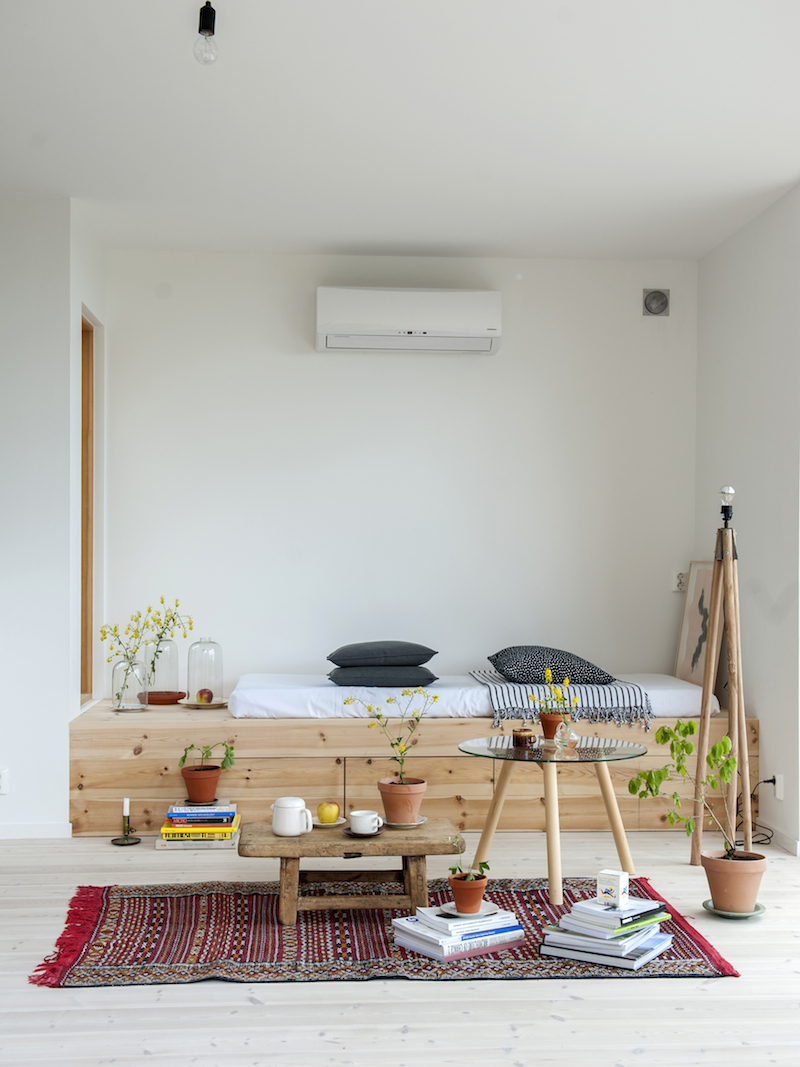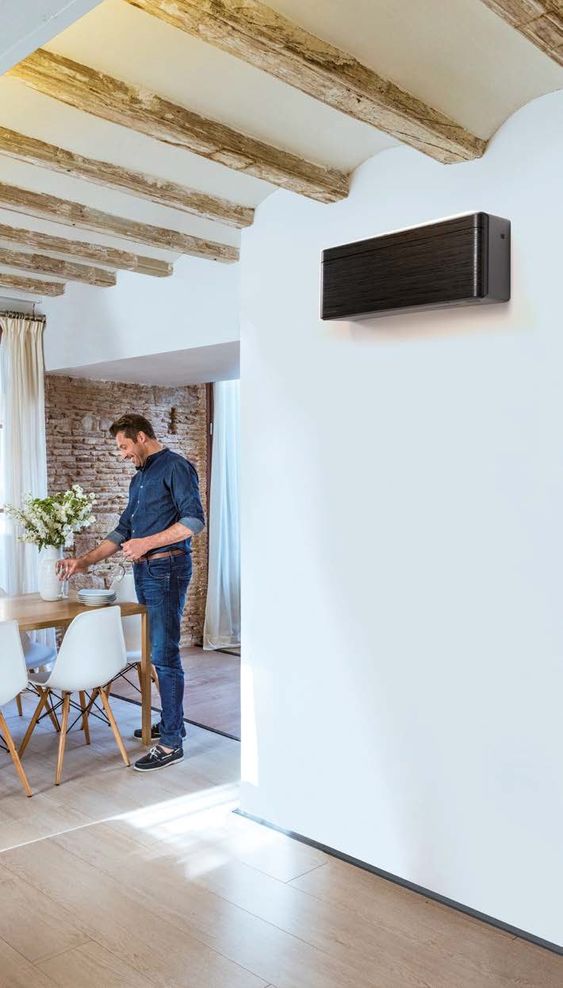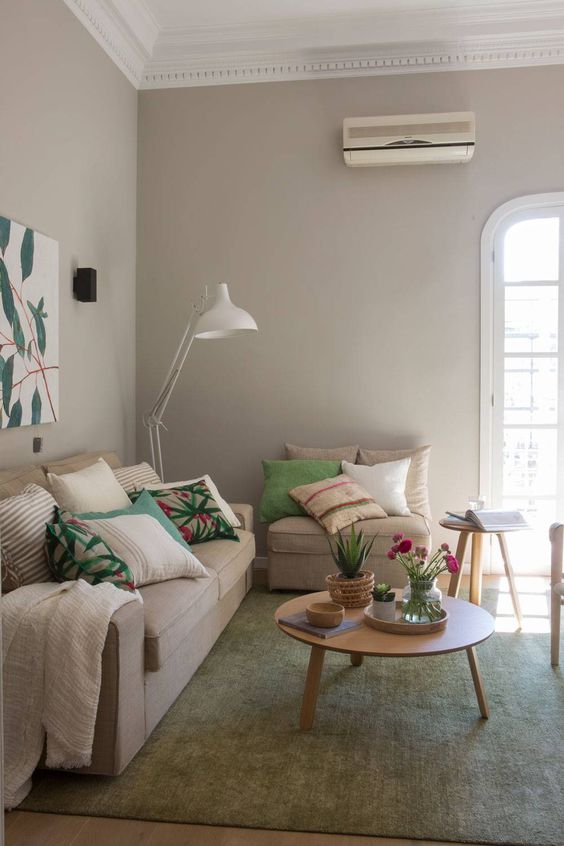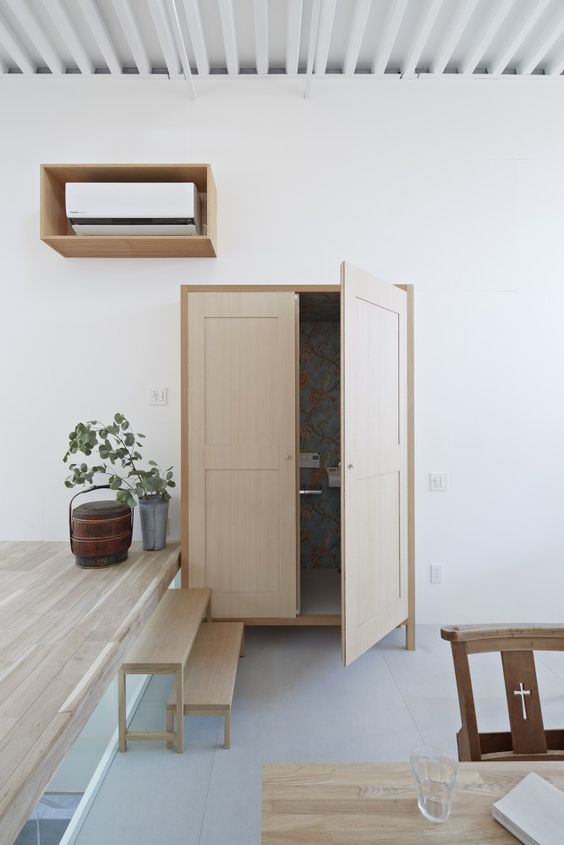
Types of AC Units for Home Use: Our Top 6 Choices
With the depredation of global warming and subsequent rise in temperatures, the need for an air conditioning unit in households is no longer considered a luxury but a basic necessity.
Selecting the best AC unit to keep one’s interiors comfortable can be a tricky task, though.
Multiple factors come into play, including the size of the room, energy efficiency, budget, and longevity of the system.
Below, we will dig into the various types of AC units for home use, their pros and cons and what type fits best for your HVAC needs.
1. Central Air Conditioners

Central air conditioning is one of the most common and reliable AC systems. This method involves the distribution of cooled air through a series of ducts placed throughout the house.
Although central systems can be costly upfront, they cool the entire house uniformly and thus are ideal for larger residences. These systems are also highly energy efficient and have a higher Seasonal Energy Efficiency Ratio (SEER) rating.
Pros:
- Uniform cooling across all rooms
- Higher SEER rating means more energy efficiency
- Longevity and reliability
Cons:
- Comparatively more expensive upfront
- Requires professional installation
- Unnecessary for smaller households
Perfect for: This type of AC unit is perfect for larger houses or properties requiring uniform cooling across multiple rooms or a large space. It can manage the temperature consistently throughout, making it an excellent choice for people who prefer a consistent temperature all over the house.
2. Window AC Units
For smaller spaces or anyone on a budget, a window AC unit is a beneficial choice. An all-in-one compact design unit is installed on a window or hole in the wall, wherein it both releases cool air inside and expels hot air outside.
Window units are simple to install and also cost-effective.
Pros:
- Budget-friendly
- Easy to install
- Effective for smaller spaces
Cons:
- Limited cooling to one room
- May block window views
- Not as energy efficient as other models
Perfect for: Window units are ideal for those living in smaller spaces such as apartments, dorm rooms, or small homes. If you need to cool down a particular space or room efficiently without breaking the bank, a window AC unit would be an excellent fit.
3. Ductless Mini-split Systems

These systems are a blend between window AC units and central air systems. Ductless mini-split systems can cool specific rooms, negating the necessity of ductwork, which makes them more energy-efficient.
While installation can be more complex than window units, these systems offer flexibility and control over the room temperature.
Pros:
- Energy-efficient
- Offers flexible temperature control
- No ductwork required
Cons:
- More complex installation
- High upfront cost
- Outdoor unit requires space and may be visibly unappealing
Perfect for: A mini-split system could be the perfect solution for homes without ductwork, or for those who want to independently control the temperature in different rooms. This type of AC unit is great for additions to homes, garage apartments, or even older homes that might not be able to accommodate a traditional duct system.
4. Portable AC Units
Also known as floor standing air conditioners, portable units are desirable for their ease of installation and mobility.
These units cool a room by pulling in fresh air, cooling it, and then redirecting it while venting out warm air through a window. They are notable for their convenience and ability to cool smaller spaces in short time periods.
Pros:
- Easy to install and move
- Ideal for smaller spaces
- Can be inexpensive
Cons:
- Not as effective for large spaces
- Can be noisy
- Frequent emptying of the moisture tank required
Perfect for: A portable AC unit is well-suited for those who need cooling in a specific area, or those who move frequently between different rooms. If you’re in a rental property where more permanent installations are not possible, this tolerable option might just be what you need.
5. Rentable Aircon Units

Rentable air conditioning units aid those who require temporary cooling solutions or who cannot afford to buy an AC unit upfront.
These units can be rented on flexible terms, like throughout the summer months or on a lease-to-own basis, or even just for specific events.
Typically you can choose between a wide range of units, including portable aircon rental options, window rentals or even hybrid AC units. This gives you a lot of flexibility to choose what best fits best for your space .
Pros:
- No high upfront cost
- Flexibility in contractual terms
- Array of unit types to choose from
Cons:
- Temporary solution
- May not be cost-effective in the long run
- Quality of units can vary
Perfect for: Rentable units are the way to go for those needing a temporary solution or who are on a strict budget. Whether you’re battling an unexpected heatwave, your main system requires a lengthy repair, or you simply can’t afford a permanent unit, a rentable AC provides an excellent solution to cool your space efficiently.
6. Hybrid/Eco-Friendly AC Units

While standard air conditioners consume large amounts of electricity, hybrid models (also known as dual fuel systems) switch between fossil fuels and electric power to save both energy and costs. During summers, the system acts as a heat pump, cooling the house, while in winters, it provides heat. Though not as common, these eco-friendly units can be worth the investment due to reduced energy bills.
Pros:
- Environment friendly
- Dual functionality – cool in summer, heat in winter
- Reduced energy bills
Cons:
- High upfront costs
- Requires professional installation
- May not be available in all locations
Perfect for: These are fitting for the ecology-conscious homeowner, who wants to maintain a comfortable temperature at home while also being energy-efficient and responsible. If you’re someone who is serious about their carbon footprint, a hybrid eco-friendly unit might be the perfect option for you.
Last Thoughts
While each type has its own set of pros and cons, it all boils down to factors such as the household’s specific cooling needs, budget, and the property’s structure.
Whether you’re looking at purchasing a large central system, a compact window unit, or exploring rentable aircon units for a brief period, it is important to carefully evaluate your options and choose the one that fits your needs best.
And like any good homeowner knows, routine maintenance of whichever unit you opt for will ensure its longevity and prime performance.
